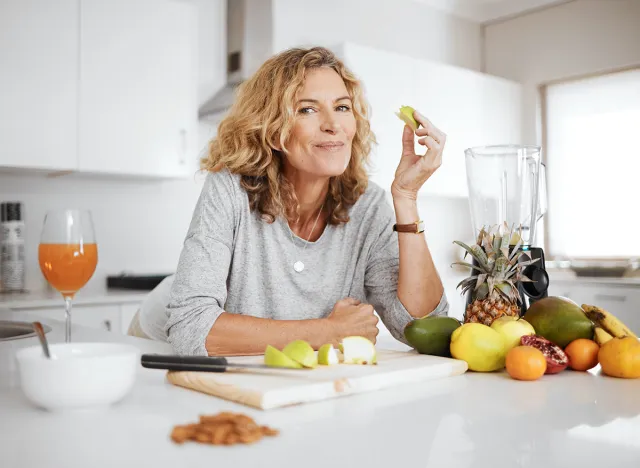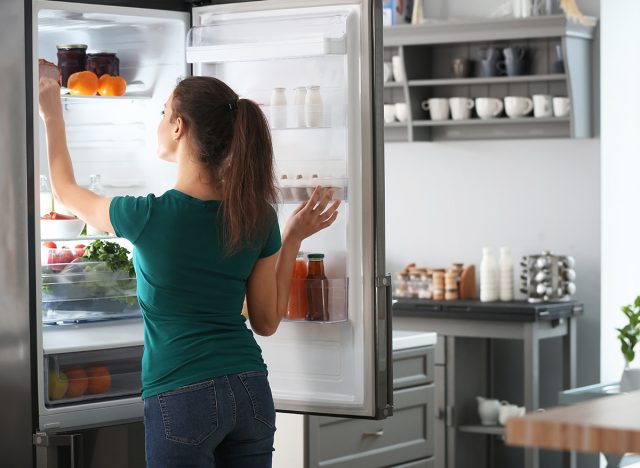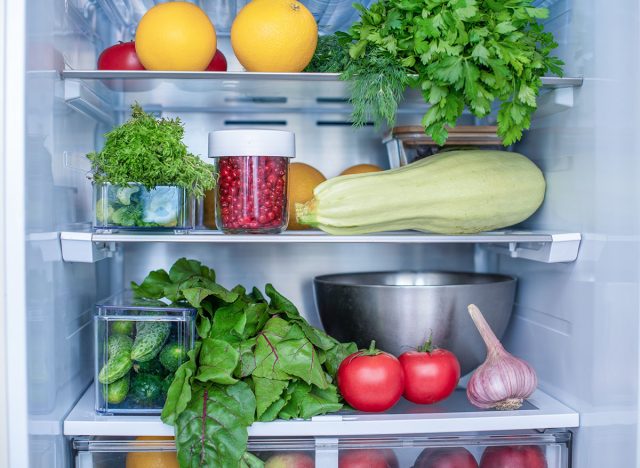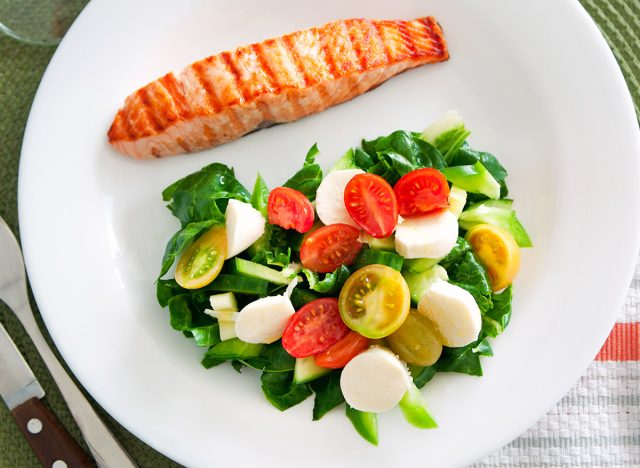What Happens to Your Body When You Stop Eating on the Go

Eating on the go can't be avoided at times—we live busy lives, and many cultures simply don't support sitting down at a table three times a day. But if you do get a chance to sit down and really focus on your food, it may positively impact your health, weight, and mental wellness. Here are things that happen to your body when you stop eating on the go.
Better Digestion

Eating on the go can cause stress. "If you are eating while overloaded with stimuli and under stress, your body doesn't know that it's supposed to be digesting," Carolyn Denton, LN, tells the University of Minnesota Twin Cities. "As you dash out the door in the morning, toast in hand, or eat lunch in front of a computer screen, or when anxiously worrying about the day or experiencing negative emotions tied to a relationship, the message you are giving your body is 'don't digest.'"
Less Overeating

Eating without distraction lets you focus on intuitive eating and knowing instinctively when it's time to stop. If you're eating while watching TV or on the computer, those signals are harder to notice. Not eating on the go means less mindless snacking and overeating.
Better Relationship With Food

Food is so much more enjoyable when you can sit down and relax. "Notice the sounds, colors, smells, tastes, and textures of the food and how you feel when eating," says Harvard T.H. Chan School of Public Health. "Pause periodically to engage these senses."
Enjoying Food

Food is meant to be enjoyed and appreciated. Your meals fuel you and can positively impact your health and happiness. By sitting down and enjoying your food without distraction, you can really focus on how it tastes and makes you feel.
Weight Loss

Eating without distractions can affect how much you eat and help you lose weight. "When you sit down for a meal, you eat more leisurely, which helps you manage your portion size and avoid extra calories," gastroenterologist Mustafa Al-Shammari, MD, tells Henry Ford Health. "You also tend to chew your food more thoroughly when sitting, which aids digestion."
Hunger and Fullness Cues

Sitting down and eating mindfully may impact your hunger and fullness cues. "Hunger isn't the only thing that influences how much we eat during the day," Howard E. LeWine, MD, says via Harvard Health. "Attention and memory also play roles. For example, after you start eating, it takes 20 minutes or so before the brain begins to start sending out 'I'm full' or 'I'm not hungry anymore' signals that turn off your appetite. If you are hurrying or not paying attention, it's easy to take in many more calories than you need in 20 minutes."
Nutritious Options

Making good meal choices is easier when you aren't running around flustered. "Keep healthy food choices, such as fruits and vegetables, readily available in cabinets, cupboards, and the refrigerator to encourage mindful, healthy eating habits," says Utah State University.
Expressing Gratitude

Not eating on the go can encourage a spiritual aspect to your meal times. "Pause for a minute or two before you begin eating to contemplate everything and everyone it took to bring the meal to your table," says Harvard Health. "Silently express your gratitude for the opportunity to enjoy delicious food and the companions you're enjoying it with."
Satisfaction After Eating

Acknowledging how nice your meal was leads to less hunger and cravings. "The benefits of mindful eating include making healthier choices, slower rate of eating, awareness of portion sizes, eating less by listening to our bodies hunger and satiety cues, enjoying food more, and increased satisfaction after eating," Christine McKinney, RD LDN CDE, tells Johns Hopkins. 'These benefits will also improve glycemic control."
Healthier Food Choices

Focusing on your food can encourage better choices. "Mindful eating can reduce your daily calorie intake," Dr. LeWine says. "By paying attention to what you are putting into your mouth, you are more likely to make healthier food choices. And you will enjoy meals and snacks more fully. That's a pretty good three-fer!" And if you enjoyed this article, don't miss these 20 Superfoods for People Over 50.




